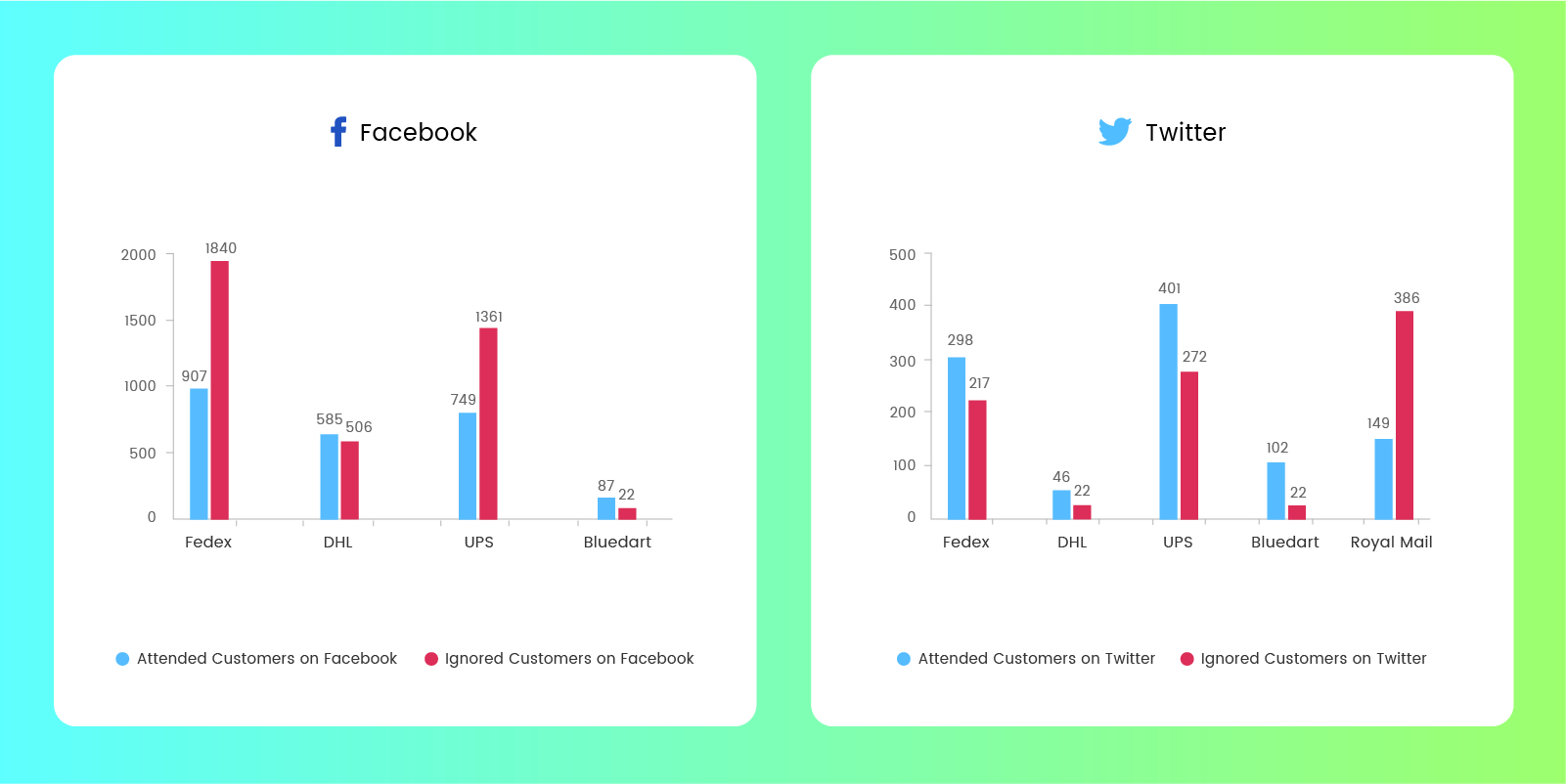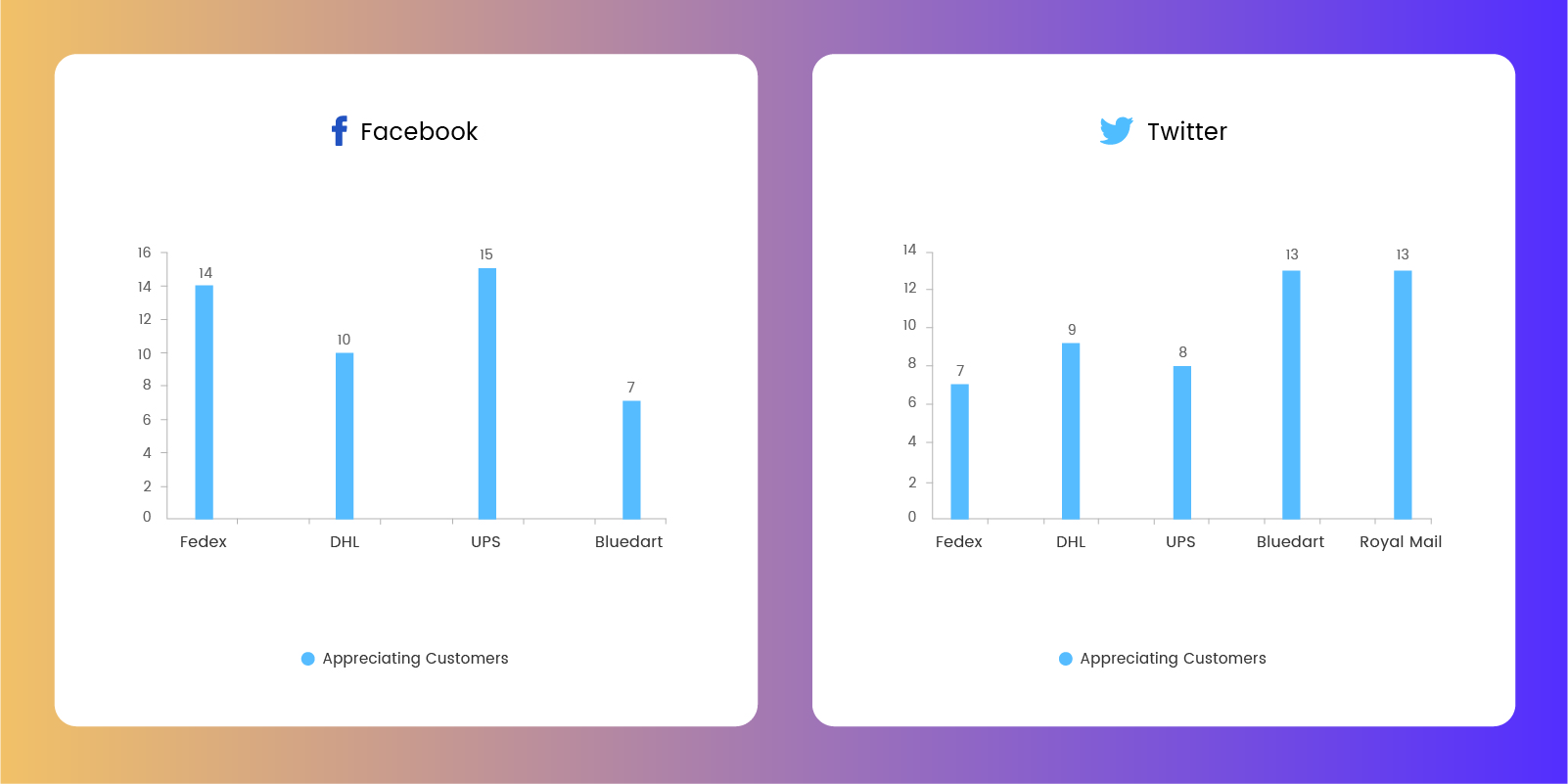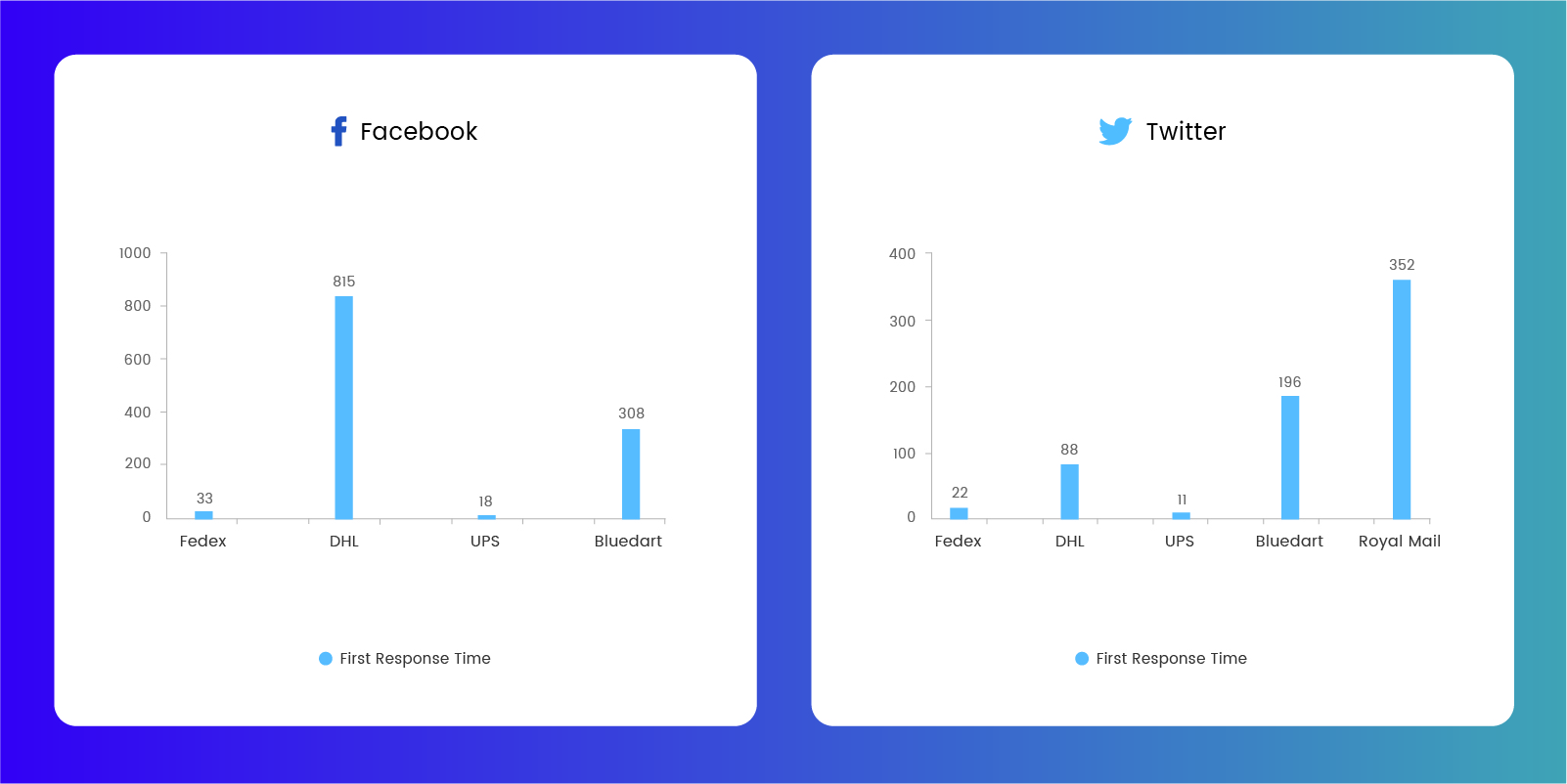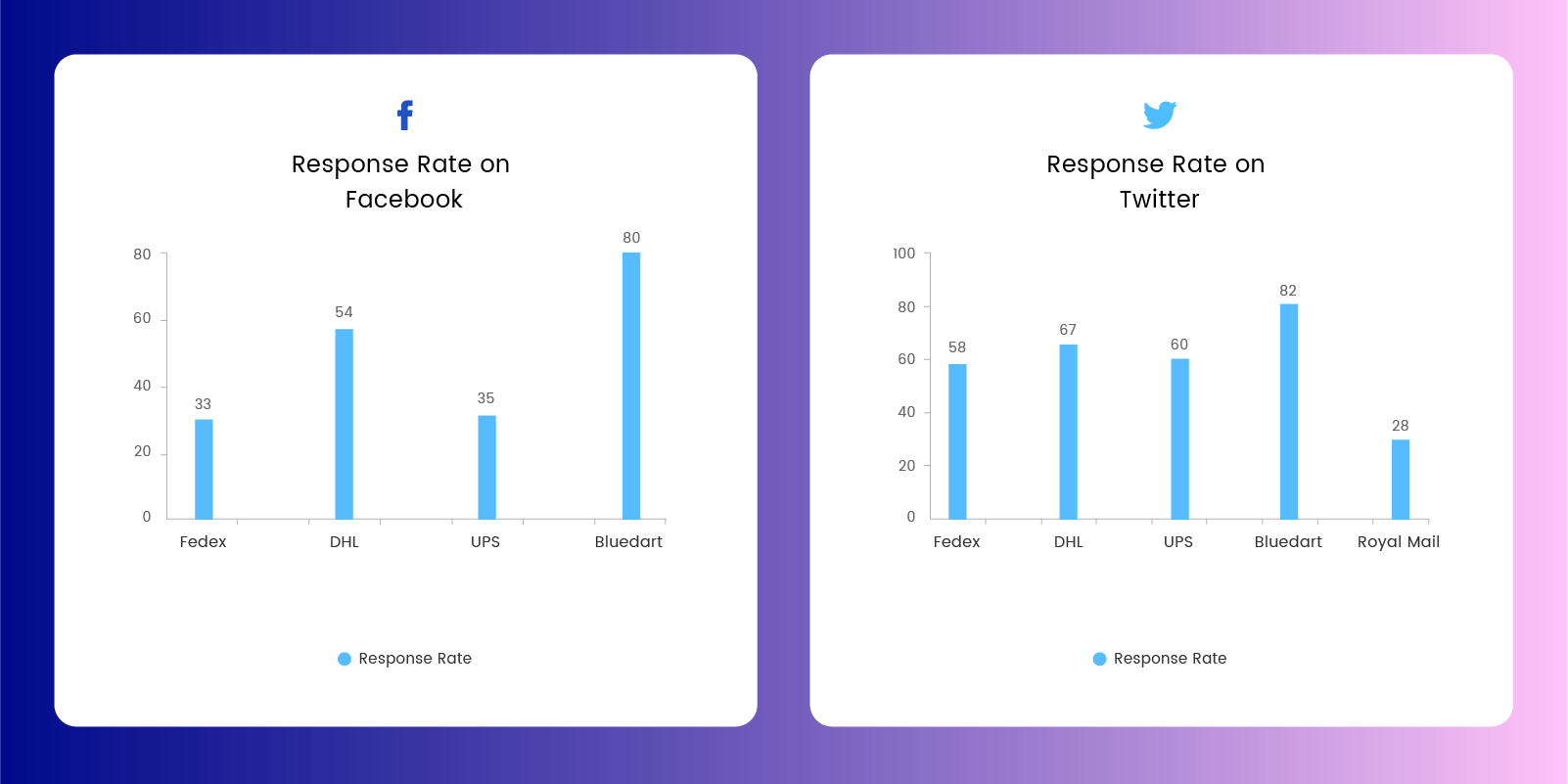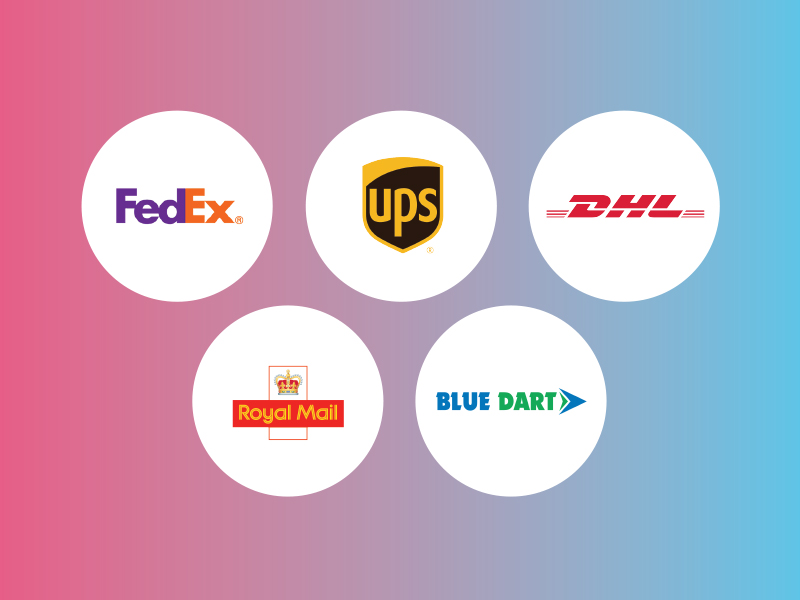
Fedex, DHL, UPS, Royal Mail and Blue Dart are the top 5 courier delivery businesses of the world. As their services are used by brands and people alike, customer service is anything but critical for them. To understand which courier brand provided superior customer service, an analysis was done for each brand. Using their Facebook and Twitter profiles, these brands were studied on parameters such as:
- Attended vs Ignored customers
- Appreciative customers
- First Response Time
- Response Rate
Based on the above factors, each brand was assigned a Social Media Customer Service score. Based on a scale of 1 to 100 with the latter being the highest, each brand received a score for its Facebook and Twitter profile.
- Attended vs Ignored customers
An attended customer is somebody who received a brand response to their query or concern, whereas an ignored customer is the one who didn’t. As ignoring customers is something that is considered bad globally, a brand’s attended customer count must always be high and ignored customer count should be low. The above charts help understand which brand is most guilty of that.
On Facebook, an interesting phenomenon was observed wherein Fedex had the highest Attended Customer and Ignored Customer counts. In fact, this was a pattern where all other brands except Blue Dart had an equal to or higher volume of Ignored Customer counts when seen against Attended Customer counts. On Twitter, while UPS has the highest Attended Customer count, Royal Mail had the highest Ignored Customer count.
- Appreciative Customers
Ask any customer service agent about how they feel when they get an appreciation from a customer. It’s a magnificent feeling, which brands thrive on and look forward to. Having a healthy volume of appreciating customers creates a positive image for the brand and inspires confidence for the brands in the hearts of other customers.
UPS and Fedex were the brands with the highest volume of Appreciative customers on Facebook. Here is one of the posts on UPS Facebook page from an appreciating customer:

On Twitter, a different picture was observed. Blue Dart and Royal Mail were at the forefront, having secured a higher volume of Appreciative Customers on Twitter. Here are instances of Appreciative Customers for Royal Mail and Blue Dart on Twitter.
Thanks so much!how is it I find out more with one tweet than in one week of tracking.thanks again appreciative customer
— Carol Gray (@CarolGr20074214) April 27, 2017
Thanks for your prompt service! I got my product delivered today! Well done!
— Nikish Das (@das_nikish) April 28, 2017
- First Response Time
Customers expect brands to provide a speedy response to their queries. Therefore, it is important for a brand to have a faster First Response Time i.e. time taken for a brand to provide a response to a customer’s concern. In general, a First Response Time of 60 minutes on Facebook and 30 minutes on Twitter is regarded as a norm.
While UPS is at the forefront in terms of an average First Response Time on both Facebook and Twitter, others like DHL, Royal Mail and Blue Dart fall behind on both mediums.
Few instances of UPS showing quick First Response Time have been shown below:
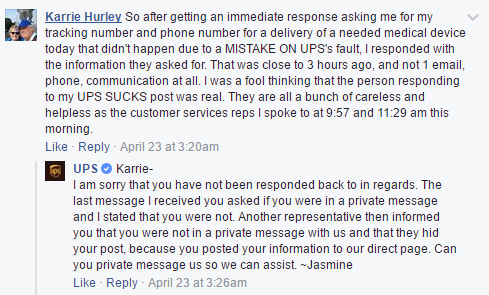
Hey @UPSHelp notice says package was left behind house by basement door. Not there. We live on 2nd floor! Wtf?!?
— Marie (@lalalalalemon) May 1, 2017
First Response Time can be improved by training social media agents, having an efficient response management tool and using practices like prioritizing customer queries.
- Response Rate:
Response Rate represents the number of customer queries you have responded to, out of the total number of customer queries present on your social media channels. Higher response rates are indicative of the brand attending to queries and concerns of most customers, if not all. Hence, higher response rates are ideal for all brands.The graphs shared above help identify that Blue Dart’s Average Response Rate across Facebook and Twitter trumps all other brands. While Fedex possessed the lowest figures on Facebook, Royal Mail was its counterpart on Twitter.
The graphs shared above help identify that Blue Dart’s Average Response Rate across Facebook and Twitter trumps all other brands. While Fedex possessed the lowest figures on Facebook, Royal Mail was its counterpart on Twitter.
Verdict: Which brand has the highest Social Media Customer Service Score?
Social Media Customer Service Score is defined as the overall customer service performance of the company on social media, which takes metrics like response rate, first response time, appreciative customers and attended vs ignored customers along with some others.
This score sets a benchmark for businesses to know how they fare at their social media response management.
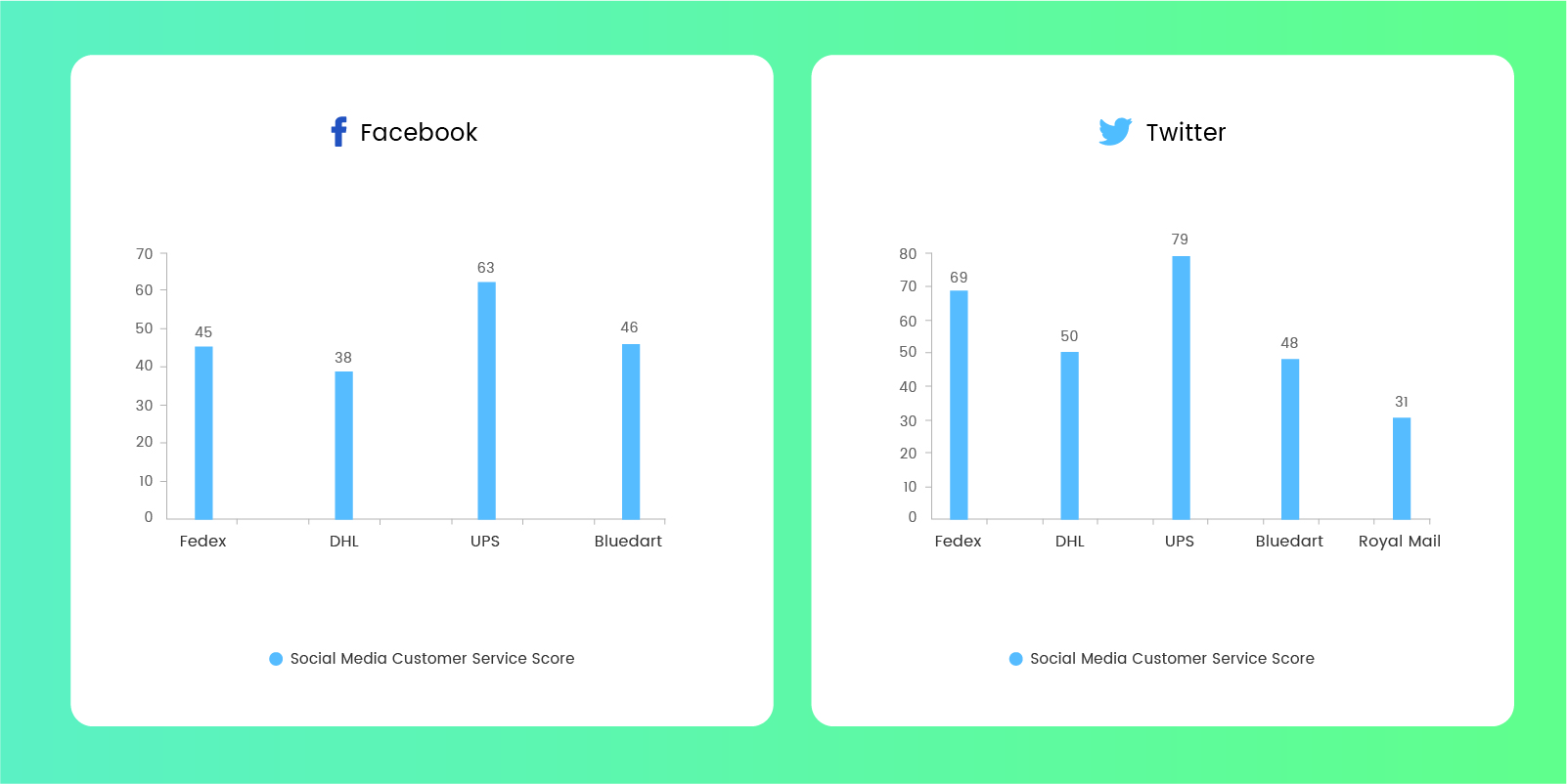 UPS achieved the highest score on Facebook and Twitter. The other top brands were Blue Dart and Fedex and Blue Dart were at second and third positions respectively. On Twitter, UPS, Fedex and DHL were at the top 3 positions.
UPS achieved the highest score on Facebook and Twitter. The other top brands were Blue Dart and Fedex and Blue Dart were at second and third positions respectively. On Twitter, UPS, Fedex and DHL were at the top 3 positions.
It is interesting to note that UPS secured high scores on both the mediums, a pattern which was also seen for Fedex. While DHL scored the lowest on Facebook, Royal Mail scored the lowest on Twitter.
An improvement on the Social Media Customer Service scores can be achieved by paying attention to response quality, turnaround times and attending a higher volume of customers on brand channels.
Summary:
- UPS appears to be the best customer service provider on Facebook and Twitter
- UPS had the highest Attended Customer count on Facebook, whereas Fedex led for that metric on Twitter
- UPS and Fedex were the brands with the highest volume of Appreciative customers on Facebook, while Blue Dart and Royal Mail secured a higher volume of Appreciative Customers on Twitter
- UPS is at the forefront in terms of an average First Response Time on both Facebook and Twitter
- Blue Dart’s Average Response Rate across Facebook and Twitter trumps all other brands
Disclaimer: Analysis was performed using Trooya’s Benchmarking Tool. Each shortlisted brand’s Twitter and Facebook channels were considered, except those who only had presence on one of those mediums. Time period for the reports and scores are dated from 2nd April 2017- 2nd May 2017

